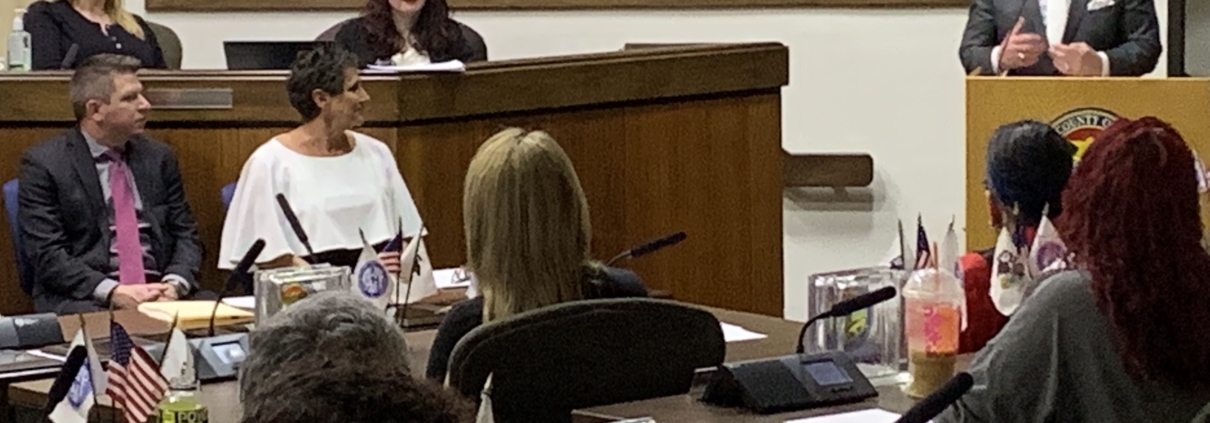Glasgow Announces Nine Participants Graduate Will County Drug Court at January 30 Ceremony – 2020 Marks Will County Drug Court’s 20th Anniversary
January 30, 2020
Joliet – Will County State’s Attorney James Glasgow has announced that nine individuals from throughout Will County graduated from the Will County Drug Court in a January 30 ceremony at the Jacob Henry Mansion in Joliet. The ceremony brings the number of people who have graduated the Drug Court program to 490. This year marks the twentieth anniversary of the program.
“The opioid epidemic continues to wreak havoc on the lives of people throughout Will County and our nation. Deaths from heroin and fentanyl in Will County have been on the rise since 2015, and the vast majority of these deaths involved fentanyl,” Glasgow stated. “Anyone who uses heroin will become addicted. It changes your brain chemistry and destroys your rational thought processes. Our Drug Court is literally saving lives by helping to remove individuals from the deadly cycle of addiction, and helping participants reclaim their lives.”
Circuit Court Judge Sarah-Marie Jones, who oversees the Drug Court docket, presided over the ceremony. James Navarro, who graduated the Will County Drug Court in March 2018 and has been sober for three years, spoke at the event about how Drug Court saved his life. Individuals who participated in the ceremony are from the communities of Joliet, Plainfield, Wilmington, Homer Glen, Braidwood, Rockdale, and Mokena.
State’s Attorney James Glasgow spearheaded the creation of the Drug Court – Will County’s first Problem Solving Court – when he wrote and administered the grant that funded its formation. In Drug Court, prosecutors and defense attorneys work with the judge and treatment providers to help individuals who have committed non-violent offenses battle their addictions. Those allowed into the program are carefully screened and must remain drug free, submit to random drug tests, find employment, follow through with treatment, and attend weekly Drug Court sessions.
In addition to Drug Court, Glasgow petitioned the court for the formation of the Will County Veterans Court. He also worked with the Chief Judge to establish the Mental Health Court, as well as writing and winning the grant for the Redeploy Illinois Court to steer qualifying repeat offenders away from prison and into gainful employment. To maximize the effectiveness of the Problem Solving Courts, Glasgow established three residential facilities to further help Problem Solving Court participants on the path to reentry. The Miller Taylor House and Julie Ann House provide temporary housing, and the Connor Kelly Residence which opened in 2019 provides longer-term transitional housing.



